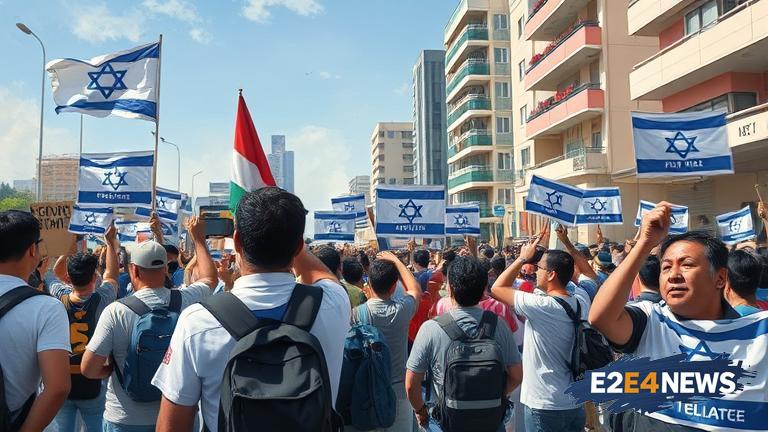A wave of protests has swept across Israel, with thousands of residents taking to the streets to express their outrage over a recent hostage deal. The deal, which was brokered by the Israeli government, has been widely criticized for its perceived leniency towards Palestinian militants. Protesters in Tel Aviv, Israel’s largest city, have been particularly vocal, with many calling for the government to take a tougher stance on terrorism. The protests have been marked by chants, banners, and speeches, with many demonstrators expressing their frustration and anger at the government’s handling of the situation. The hostage deal has been seen as a major concession to Palestinian militants, who have been holding several Israeli citizens captive for months. The Israeli government has defended the deal, saying it was necessary to secure the release of the hostages and prevent further violence. However, many Israelis are skeptical of the government’s claims, and believe that the deal will only embolden Palestinian militants to carry out further attacks. The protests have also highlighted the deep divisions within Israeli society, with many on the left calling for a more nuanced approach to the conflict, while those on the right demand a tougher stance. As the protests continue, it remains to be seen how the government will respond to the growing unrest. The international community has been watching the situation closely, with many calling for calm and restraint. The United States, in particular, has been keen to see a peaceful resolution to the conflict, and has been working closely with Israeli and Palestinian leaders to achieve this goal. Despite the challenges, there are still many who believe that a two-state solution is the only way to achieve lasting peace in the region. However, with tensions running high, it is unclear whether such a solution will be achievable in the near future. The protests in Israel have also sparked a wider debate about the role of government in negotiating with militant groups. Many have questioned whether the Israeli government’s decision to negotiate with Palestinian militants has set a dangerous precedent, and whether it will embolden other groups to carry out similar attacks. As the situation continues to unfold, it is clear that the protests in Israel will have far-reaching consequences, both for the country and the wider region. The Israeli government will need to carefully consider its next steps, and work to address the concerns of its citizens, while also navigating the complex web of international diplomacy. The protests have also highlighted the importance of a free and independent media, with many Israeli journalists playing a key role in reporting on the protests and holding the government to account. Social media has also played a significant role in the protests, with many demonstrators using platforms such as Twitter and Facebook to organize and coordinate their actions. As the protests continue, it is likely that social media will remain a key tool for demonstrators, allowing them to reach a wider audience and mobilize support. The international community will be watching the situation closely, and will be keen to see how the Israeli government responds to the growing unrest. The United Nations has already issued a statement calling for calm and restraint, and it is likely that other international organizations will follow suit. The European Union has also been closely monitoring the situation, and has called for a peaceful resolution to the conflict. As the situation continues to unfold, it is clear that the protests in Israel will have significant implications for the wider region, and will require a careful and nuanced response from the international community.
